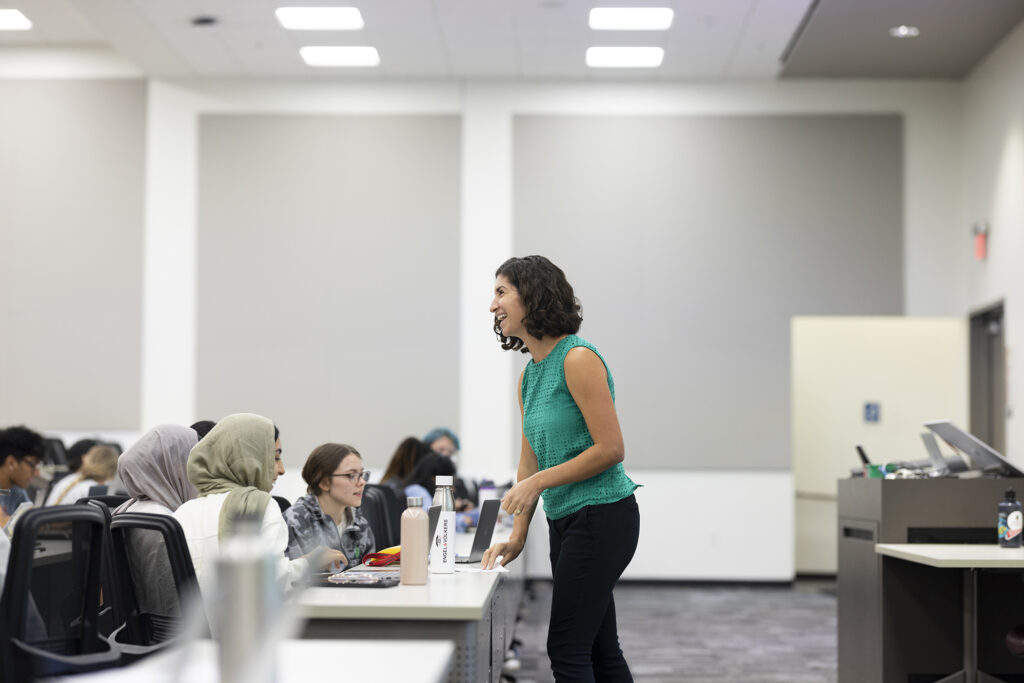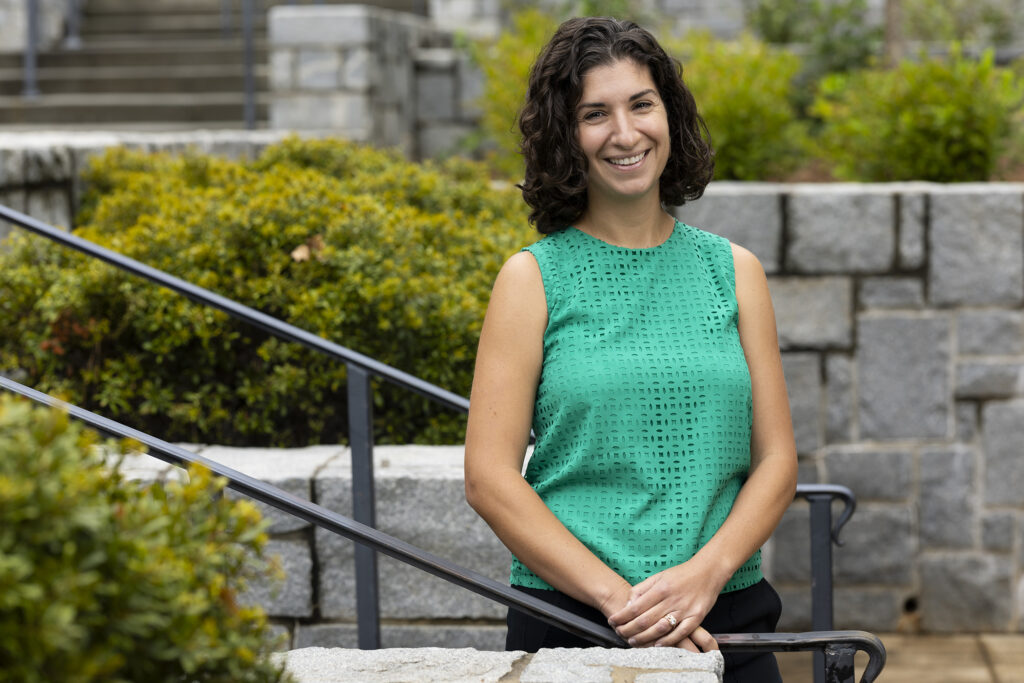Alli Injaian, lecturer and academic coordinator at the Odum School of Ecology, sometimes feels like a talent manager. Fifty percent of her job is teaching, but the other 50% involves instructional service and administrative responsibilities like determining faculty teaching assignments.
“It gets complicated,” said Injaian, “but I try to get to know faculty and what they enjoy teaching so I’m able to solve instructional problems as they arise.”
That tendency to delve into a complex situation to find a better approach is something that pervades her work.
In addition to facilitating teaching assignments and coordinating peer teaching evaluations for faculty, Injaian conducts new student orientation, meeting with incoming students and their families when they visit. She also leads the school’s student ambassador program, now in its second year.
Last year, student ambassador Margaret Xiao was awarded a sustainability grant to create a program that facilitates reuse of chemistry lab coats. That program is continuing this year, and Injaian is helping the group expand it to include graduation regalia—an idea they’ll pilot with spring convocation.
“We’ll ask ecology students to donate their gowns this year, so they can be reused by future graduates at Commencement,” she said. “The ambassadors are excited about that—obviously they’re into the idea of sustainability. I think they also enjoy having a tangible project that they can carry out and see completed in their year of service.”

Odom School of Ecology lecturer Alli Injaian talks with students during group work time in her class at the Science Learning Center. (Photo by Andrew Davis Tucker/UGA)
Injaian, a member of UGA’s 2022-23 Service-Learning Fellows cohort, teaches general ecology, behavioral ecology and urban ecology, a service-learning class developed with a teacher at Burney-Harris-Lyons Middle School in Athens. The two combined their classrooms, allowing UGA ecology students to work alongside BHL students to learn about native trees and plant 24 trees on BHL’s grounds, creating a school arboretum.
She also teaches a professional development class required for ecology majors that focuses on topics such as building community, improving professional email communication and developing résumés. Injaian has compiled a course pack for the seminar that she hopes will support students well after they’ve graduated.
“[We’ll tell them] ‘Don’t throw this away!’” she said.
During fall semester, Injaian is teaching two large sections (120-plus) of general ecology that are also facilitating an IRB-approved study on teaching techniques—a way to explore how to make her classes more effective.
She also brought in peer-learning assistants, undergraduates who serve as teaching assistants through a program funded by the Division of Academic Enhancement. Six peer-learning assistants help with the general ecology classes, allowing her to employ active learning strategies with plenty of feedback and guidance.
Her interest in pedagogy is based partly on her own undergraduate experience at Ursinus College in Pennsylvania. “I had almost entirely flipped classrooms,” said Injaian, who earned a master’s degree at the University of Michigan and a Ph.D. at the University of California, Davis. “I didn’t know what that was at the time, but looking back now, I see that’s how I learned ecology.”
“I think education is important, and I think that equity is really important,” she said. “Teaching in a way that supports learning gains for the most diverse group of people is what I want to do.”
